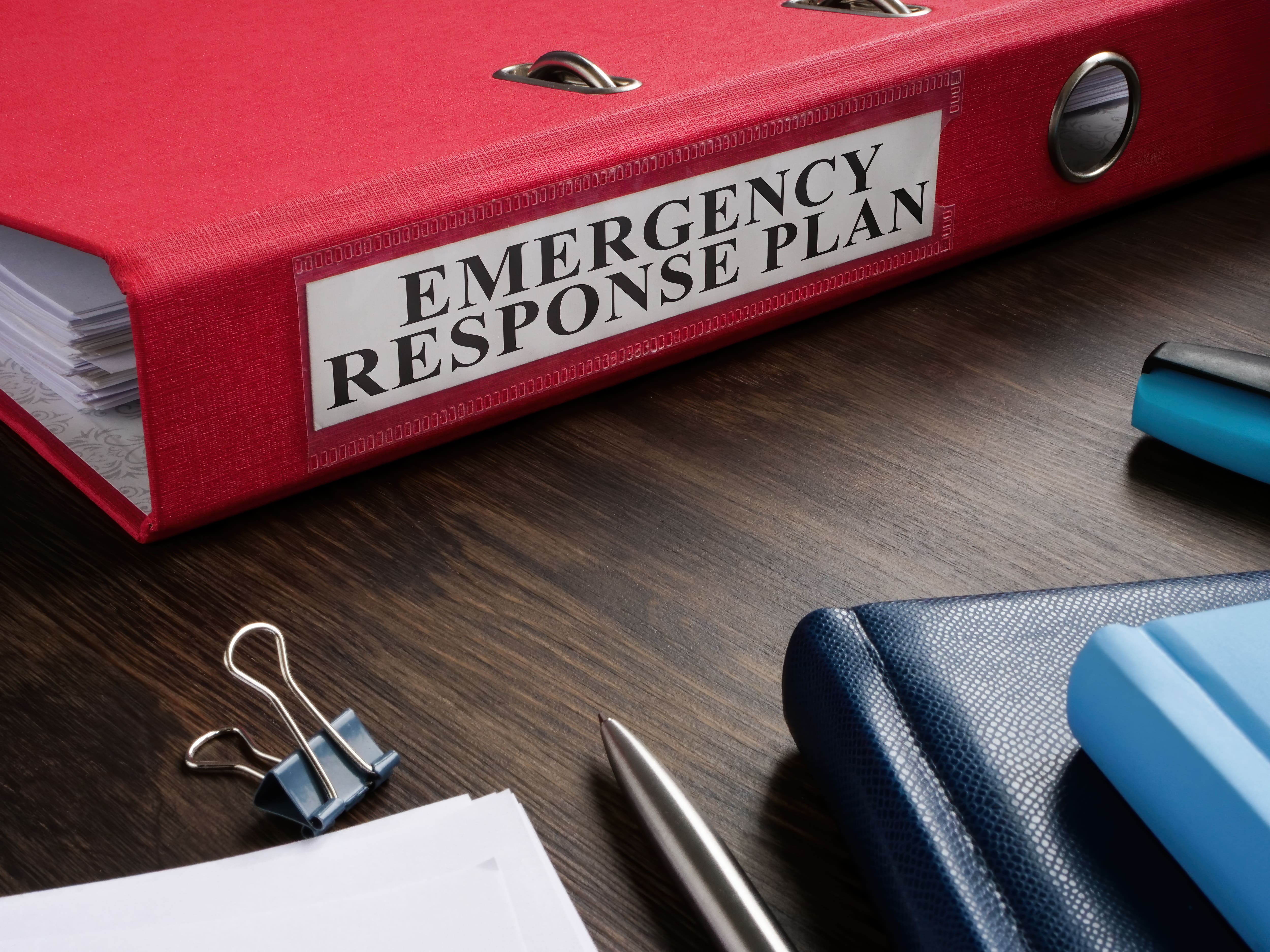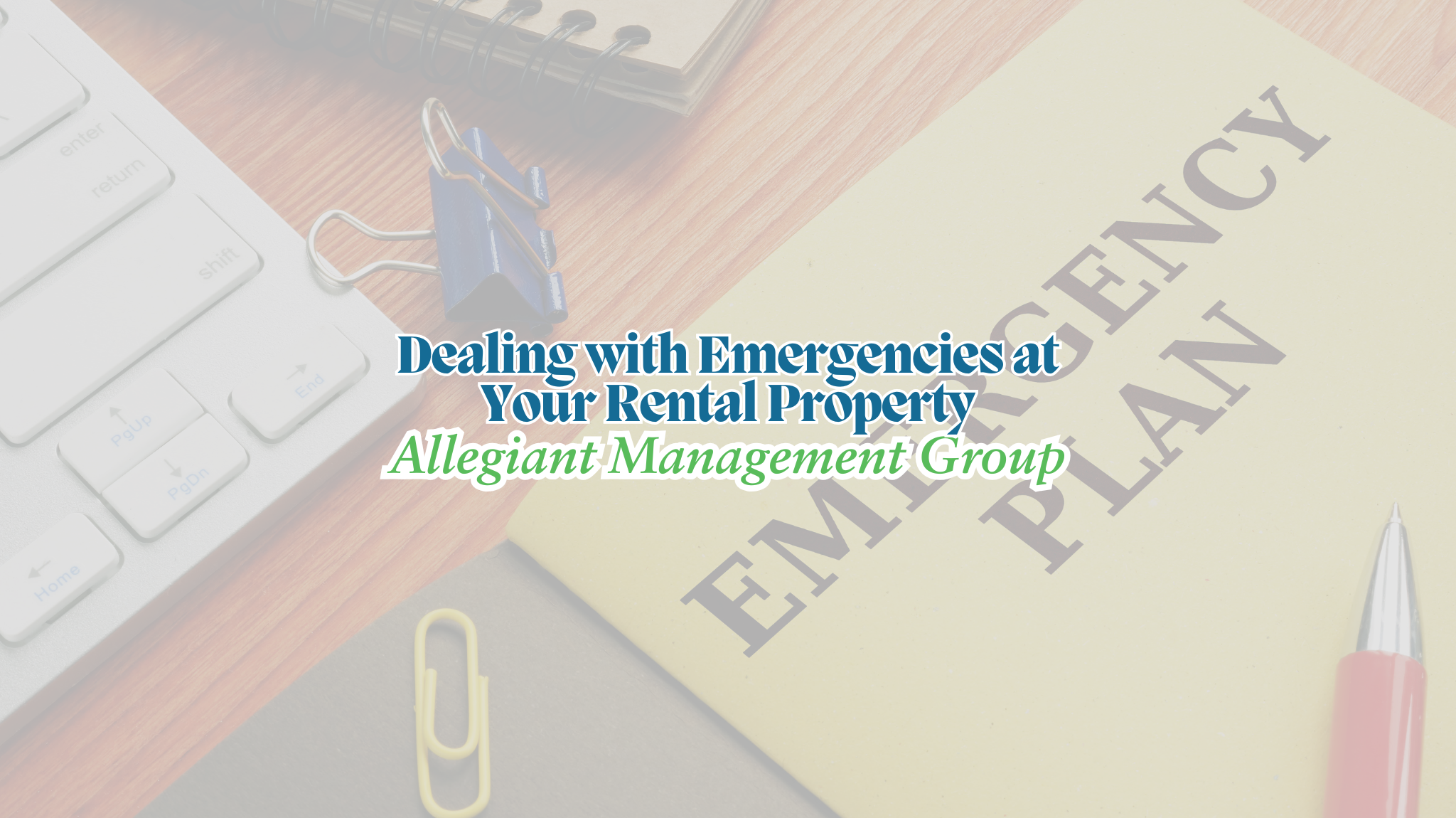Handling Emergencies at Your Rental Property
Owning a rental property can be a rewarding investment. However, it also comes with its share of challenges.
One of the most daunting aspects is dealing with emergencies. These can range from urgent repairs to natural disasters.
Understanding what constitutes an emergency repair is crucial. It's also important to know your legal obligations as a property owner.
This article aims to guide you through the process of managing emergencies at your rental property. We'll delve into creating an effective emergency response plan and establishing a financial safety net.
We'll also explore strategies for maintaining good tenant relations during crises. By the end, you'll be better equipped to handle any emergency that comes your way.
So, let's dive in and learn how to turn potential crises into manageable situations.
Understanding Rental Property Emergencies

Rental property emergencies can strike at any time. Understanding them is vital for effective property management.
Emergencies typically involve situations that affect safety or habitability. They require immediate attention to prevent further damage or risk.
Common emergency scenarios include severe leaks, gas leaks, or electrical hazards. Additionally, failure of essential systems like heating in winter or air conditioning in extreme heat is urgent.
To better manage such situations, consider the following actions:
- Evaluate potential risks unique to your property.
- Categorize emergencies by severity and impact.
- Establish a protocol for each scenario.
Having these strategies will help mitigate potential crises efficiently. It will also ensure compliance with legal requirements, protecting both you and your tenants.
What Qualifies as an Emergency Repair?

Differentiating between routine maintenance and emergency repairs is key. Emergencies need immediate action due to their potential impact on safety and living conditions.
Typical emergency repairs include burst pipes that could lead to flooding or structural damage. Gas leaks create immediate health risks and require swift action. Electrical issues, particularly those that could result in a fire, also qualify as emergencies.
Additional urgent repairs may include:
- Broken heating systems in cold climates.
- Loss of water supply.
- Major structural damage like a collapsing roof.
Having a clear understanding of what constitutes an emergency helps prioritize repairs. It ensures resources are allocated where they are needed most, keeping the property safe and habitable.
Legal Obligations for Emergency Repairs

Property owners have specific legal obligations when it comes to emergency repairs. These ensure tenant safety and adherence to health standards.
Landlords must address emergencies promptly, minimizing risk and inconvenience to tenants. This means action is often required within hours, not days.
Failure to act quickly can lead to legal issues or penalties. It may also damage your reputation as a responsible landlord.
Understanding local housing laws is crucial. They dictate the timeframe and standards for emergency repairs.
Staying informed about these regulations helps prevent legal complications. It ensures you meet both your tenant’s needs and legal responsibilities effectively.
Creating an Emergency Response Plan

An emergency response plan is crucial for rental property management. It ensures a quick, organized reaction to crises.
Begin by identifying potential emergencies unique to your property. This could range from natural disasters to mechanical failures.
Next, outline specific actions for each type of emergency. Assign roles and responsibilities to ensure efficient execution.
A detailed plan should include:
- Emergency contact list for tenants, contractors, and local services.
- Step-by-step protocols for different emergencies.
- Resources required, such as tools or emergency kits.
- Regular training schedules to keep all involved parties informed.
Testing and updating your plan are also vital. Regular drills help refine procedures and highlight areas for improvement. Keeping the plan current ensures you are ready for any situation.
Rental Property Emergency Management - Key Elements of an Effective Plan
An effective emergency response plan has several key elements. These ensure thorough preparation and clear communication.
Firstly, a comprehensive contact list is essential. It should include tenants, emergency services, and preferred contractors.
Detailed protocols for each scenario are also crucial. These guide actions for common emergencies like leaks or outages.
Other important elements include:
- Assigned roles for property management and staff.
- Resource inventory needed for emergencies.
- A communication plan to inform all parties swiftly.
Regular review and practice solidify these elements into a cohesive, effective plan. They ensure you're ready to handle emergencies with confidence and efficiency.
Communication Strategies with Tenants

Clear communication with tenants is a cornerstone of effective emergency management. It builds trust and ensures quick resolution.
Establish multiple communication channels for reporting and updates. Options include phone, email, and messaging apps.
During emergencies, keep tenants informed at every step. Provide clear instructions on actions to take and expected timelines.
Educate tenants on what constitutes an emergency. This helps them differentiate between immediate issues and non-urgent concerns.
Finally, maintain an open dialogue even after the crisis. Seek feedback to improve processes and strengthen tenant relations. Proactive communication enhances preparedness and ensures smooth crisis management.
Financial Preparedness: The Emergency Fund

Financial preparation is vital for managing rental property emergencies. An emergency fund provides the necessary financial buffer.
First, determine an appropriate emergency fund size for your property. This varies but often includes several months of operating costs.
Consider factors such as property age, location, and tenant turnover. Older properties might demand larger funds for unforeseen repairs.
The emergency fund should cover urgent repairs like plumbing failures or HVAC issues. This ensures prompt action without financial strain.
In building your fund, prioritize consistent contributions. Set aside a percentage of your rental income each month. Key guidelines to consider in building your fund include:
- Regularly review and adjust fund targets.
- Keep the fund separate from other accounts.
- Replenish the fund after withdrawals promptly.
- Use the fund strictly for emergencies, not routine maintenance.
Good financial planning reduces stress during crises and ensures swift repairs.
How Much to Save for Emergencies

Determining how much to save involves assessing your specific property needs. A typical recommendation is saving 3-6 months’ worth of expenses.
This covers minor to significant repairs, minimizing financial disruption. Consider specific risks unique to your location, like weather-related damages.
Smaller, newer properties might need less; however, larger, older buildings may require more. Evaluate insurance deductibles as well, ensuring the fund can cover unexpected costs.
Regularly review and adjust savings targets to reflect property changes. Economic conditions and maintenance costs can impact required fund size.
Ultimately, a well-sized fund provides peace of mind and financial stability. It equips you to handle emergencies confidently and efficiently.
Budgeting and Insurance Considerations

Effective budgeting is key to managing a rental property's finances. An emergency fund should fit within your overall financial strategy.
Allocate rental income wisely, ensuring adequate emergency savings. Use a detailed budget to track expenses and identify potential savings areas.
Insurance is another critical element of financial preparedness. Ensure coverage is adequate for potential emergencies. Review policies regularly to adjust for property changes or new risks.
Understand your coverage limitations and ensure you can meet any deductibles. This awareness allows for better financial planning.
Finally, integrate your insurance into your budgeting process. Plan for premiums and consider supplementary coverage if necessary.
Together, budgeting and proper insurance offer robust protection. This financial preparation allows you to manage emergencies without undue stress, maintaining property value and tenant satisfaction.
Crisis Management and Tenant Relations

Crisis management plays a vital role during rental property emergencies. Effective handling of these situations fosters positive tenant relations. Clear communication is the cornerstone of successful crisis management. This involves promptly informing tenants about the situation and planned responses.
Maintaining a calm and professional demeanor reassures tenants. It helps in easing their concerns and establishing trust. Regular updates are important throughout the emergency. Tenants appreciate being informed, even if solutions are still in progress.
Building good tenant relations also involves acknowledging their inconveniences. Addressing specific needs, such as special accommodations, further reinforces your commitment to tenant welfare. Collaboration with tenants can improve response times and potentially prevent some emergencies.
Using technology such as messaging apps can improve communication speed and clarity. This ensures important information reaches tenants promptly. Reflecting on crisis management experiences afterward can yield valuable lessons and future improvements. Tenant feedback can also provide insights into enhancing emergency response procedures.
Handling Tenant Displacement and Repairs
Emergency repairs may require tenant displacement, which can be challenging. Clear communication is crucial in these instances. Inform tenants of the need for temporary relocation and the anticipated duration of repairs.
Assist displaced tenants in finding temporary housing when needed. This proactive support helps maintain good relations. Document all interactions and support services offered to avoid misunderstandings.
Efficiently manage repairs to minimize the displacement period. Hire reliable contractors, and establish timelines for repair completion. This keeps disruptions to a minimum, benefiting both tenants and property value.
Reassure tenants that their home will be restored with care and diligence. Providing updates during this process helps ease their transition back. Handling displacement thoughtfully reinforces tenant trust and loyalty.
Post-Emergency Follow-Up and Legal Protection

Following an emergency, it's crucial to assess the effectiveness of your response. Conduct a thorough review of the situation and identify areas for improvement. This proactive approach enhances future crisis management strategies.
In terms of legal protection, documentation is key. Keep detailed records of repairs, tenant communications, and incurred expenses. This protects you in the event of disputes or misunderstandings.
Consult with legal counsel to ensure compliance with local laws. They can provide guidance on tenant rights and property obligations. This ensures a lawful handling of emergencies.
Regular follow-up with tenants after repairs reinforces your commitment to their well-being. Address any lingering concerns they might have. Acknowledging their experiences can improve overall tenant satisfaction.
Finally, update emergency response plans based on recent events. This continuous improvement ensures you are better prepared for future incidents, safeguarding both tenants and your investment.
Property Management Companies & Emergency Management
Property management companies play a crucial role in emergency management for rental properties. They bring expertise, property management solutions, and resources that can significantly enhance the effectiveness of your emergency response plan.
When you choose a reliable property management company, you gain access to a network of trustworthy contractors and emergency services. This means repairs can be done quickly and effectively.
Additionally, these companies often have established protocols for various emergency scenarios, which can streamline communication and response times. Their experience in handling tenant relations during tough times can help keep a good environment. This reduces stress for both landlords and tenants.
Effective Rental Property Emergency Handling

Managing emergencies at rental properties effectively requires preparation and proactive measures. By understanding what constitutes an emergency, and having a response plan, you can address issues quickly and appropriately.
Establishing a robust emergency fund is essential to cover unexpected costs. Maintaining open communication with tenants during crises fosters trust and eases stress. Continually refining your emergency strategies and documentation will enhance your ability to handle future challenges.
Armed with the right knowledge and tools, you can ensure the safety and satisfaction of your tenants while protecting your investment.
Don’t wait for a crisis to strike—partner with Allegiant Management Group for expert property management and 24/7 emergency support. Contact us today to safeguard your investment and protect your tenants with confidence.
Watch our Emergency Preparedness Video:
Stay prepared.
Frequently Asked Questions (FAQs): Rental Property Emergencies
How much to have in rental property emergency fund?
Keep 3 to 6 months of rental expenses in an emergency fund. Include mortgage, insurance, taxes, utilities, and maintenance costs. Adjust based on tenant reliability, property age, and local market risks.
Is emergency fund for rental property necessary?
Yes, an emergency fund for rental property is necessary. It covers unexpected repairs, vacancies, and legal issues. Without it, landlords risk cash flow problems and delayed maintenance, which can reduce property value and tenant satisfaction.
Where can i find an emergency preparedness guide?
Find an emergency preparedness guide on Ready.gov. It offers official checklists, planning templates, and safety tips for natural disasters, power outages, and other emergencies. Local government websites and the Red Cross also provide downloadable guides.
What is considered an emergency repair for a rental property?
Emergency repairs include broken heating in winter, gas leaks, flooding, electrical failures, or anything that risks tenant safety or property damage. These issues require immediate action to prevent harm or legal liability.
How do i handle a rental property emergency?
Handle a rental property emergency by responding immediately, assessing the situation, contacting licensed professionals, and informing tenants. Document the issue, repairs, and costs. Follow local laws and keep emergency contacts ready.
Disclaimer: This article is intended for informational purposes only and does not constitute legal advice. Always consult a qualified attorney or property management professional regarding local laws and emergency procedures.
Blog Updated: 04/14/2025



